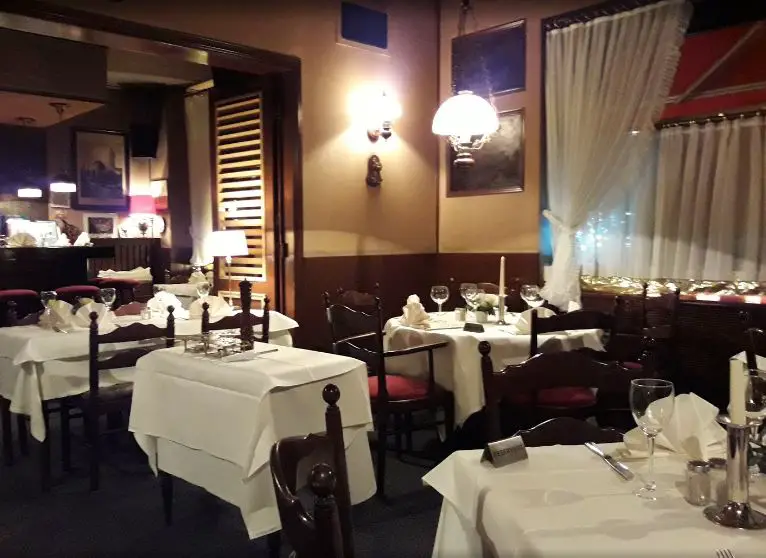What is considered polite behavior in Germany?
Post ByAdequate Travel
Summary
Polite behavior is an important factor for any culture, and Germans are no exception. In Germany, there are various expectations of politeness and certain behaviors that can help you blend in with the locals. In this blog, we will discuss the various elements of polite behavior in Germany and how to make sure you exercise these polite behaviors in your interactions with people from the country.
Stay informed about any travel restrictions or travel rules in place, as they may vary depending on your destination within the country.
Polite behavior in Germany, just like in any other country, is essential for fostering positive social interactions. Here are some key aspects of polite behavior in Germany:1. Greeting: Germans value greetings as a way to acknowledge others. It's common to greet with a firm handshake, maintaining eye contact while saying "Guten Tag" (Good day) or "Hallo." When entering a small shop or office, it is customary to greet everyone present with a simple "Guten Tag" or "Hallo" rather than just the person you are interacting with.Example: When entering a German bakery, it is polite to greet the staff and say "Guten Tag" to acknowledge their presence.2. Using formal language: In formal situations or with people you don't know well, using formal language is respectful. Addressing someone using "Sie" (the formal "you") instead of "Du" (informal "you") shows politeness and is expected in professional environments, with older people, or when meeting someone for the first time.Example: When speaking to your colleague's supervisor, it is polite to address them with "Sie" rather than "Du."3. Punctuality: Germans highly value punctuality and expect others to be on time for appointments, meetings, and social gatherings. Being a few minutes early is considered courteous, while arriving late without a valid reason may be seen as disrespectful. If you know you will be late, it's polite to inform the person waiting for you in advance.Example: If you have a lunch appointment with a German friend, make sure to be there on time or slightly early to show respect for their time.4. Table manners: Germans have specific table manners that are considered polite. These include keeping your hands on the table (not in your lap), holding utensils correctly, chewing with your mouth closed, and not speaking when your mouth is full. It is also customary to wait until everyone has been served and the host says "Guten Appetit" (enjoy your meal) before starting to eat.Example: When dining at a German friend's house, using proper table manners and waiting for the host's signal to start eating is considered good etiquette.5. Saying "Danke" (Thank you): Expressing gratitude is important in German culture. Saying "Danke" or "Dankeschön" (thank you) is common when someone does something for you or provides a service. It is also polite to say "Bitte" (please) when making a request.Example: When someone holds the door for you, saying "Danke" to acknowledge their gesture is a polite and common response.Overall, polite behavior in Germany revolves around showing respect for others, adhering to social norms, and being considerate of people's time and personal space. By embracing these practices, you can ensure harmonious interactions during your time in Germany.
Polite behavior in Germany, just like in any other country, is essential for fostering positive social interactions. Here are some key aspects of polite behavior in Germany:1. Greeting: Germans value greetings as a way to acknowledge others. It's common to greet with a firm handshake, maintaining eye contact while saying "Guten Tag" (Good day) or "Hallo." When entering a small shop or office, it is customary to greet everyone present with a simple "Guten Tag" or "Hallo" rather than just the person you are interacting with.Example: When entering a German bakery, it is polite to greet the staff and say "Guten Tag" to acknowledge their presence.2. Using formal language: In formal situations or with people you don't know well, using formal language is respectful. Addressing someone using "Sie" (the formal "you") instead of "Du" (informal "you") shows politeness and is expected in professional environments, with older people, or when meeting someone for the first time.Example: When speaking to your colleague's supervisor, it is polite to address them with "Sie" rather than "Du."3. Punctuality: Germans highly value punctuality and expect others to be on time for appointments, meetings, and social gatherings. Being a few minutes early is considered courteous, while arriving late without a valid reason may be seen as disrespectful. If you know you will be late, it's polite to inform the person waiting for you in advance.Example: If you have a lunch appointment with a German friend, make sure to be there on time or slightly early to show respect for their time.4. Table manners: Germans have specific table manners that are considered polite. These include keeping your hands on the table (not in your lap), holding utensils correctly, chewing with your mouth closed, and not speaking when your mouth is full. It is also customary to wait until everyone has been served and the host says "Guten Appetit" (enjoy your meal) before starting to eat.Example: When dining at a German friend's house, using proper table manners and waiting for the host's signal to start eating is considered good etiquette.5. Saying "Danke" (Thank you): Expressing gratitude is important in German culture. Saying "Danke" or "Dankeschön" (thank you) is common when someone does something for you or provides a service. It is also polite to say "Bitte" (please) when making a request.Example: When someone holds the door for you, saying "Danke" to acknowledge their gesture is a polite and common response.Overall, polite behavior in Germany revolves around showing respect for others, adhering to social norms, and being considerate of people's time and personal space. By embracing these practices, you can ensure harmonious interactions during your time in Germany.
Suggested Questions
- Altes Museum, Berlin: Horror Story, History & Paranomial Activities
- Burg Eltz, Wierschem: Horror Story, History & Paranomial Activities
- Heidelberg Castle, Heidelberg: Horror Story, History & Paranomial Activities
- Schloss Rheinfels, St. Goar: Horror Story, History & Paranomial Activities
- Würzburg Residence, Würzburg: Horror Story, History & Paranomial Activities
- Schloss Herberstein, Feldbach (near the German-Austrian border): Horror Story, History & Paranomial Activities











